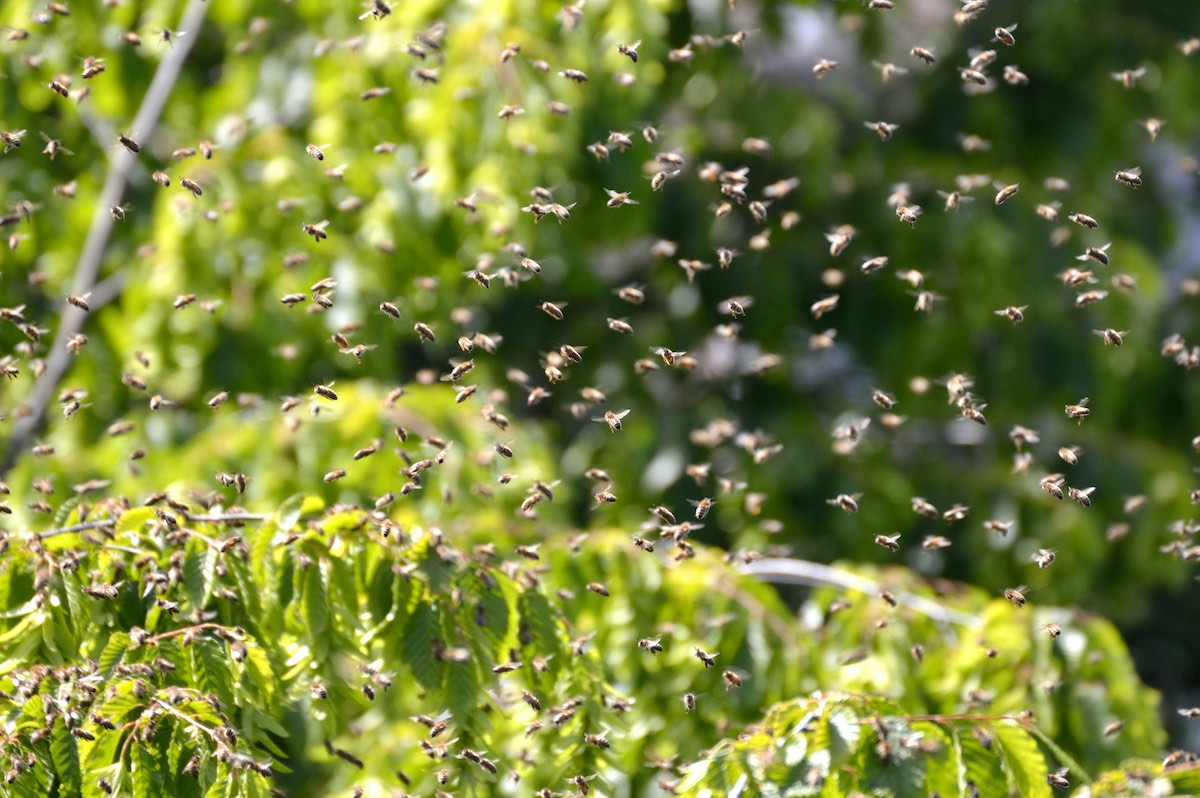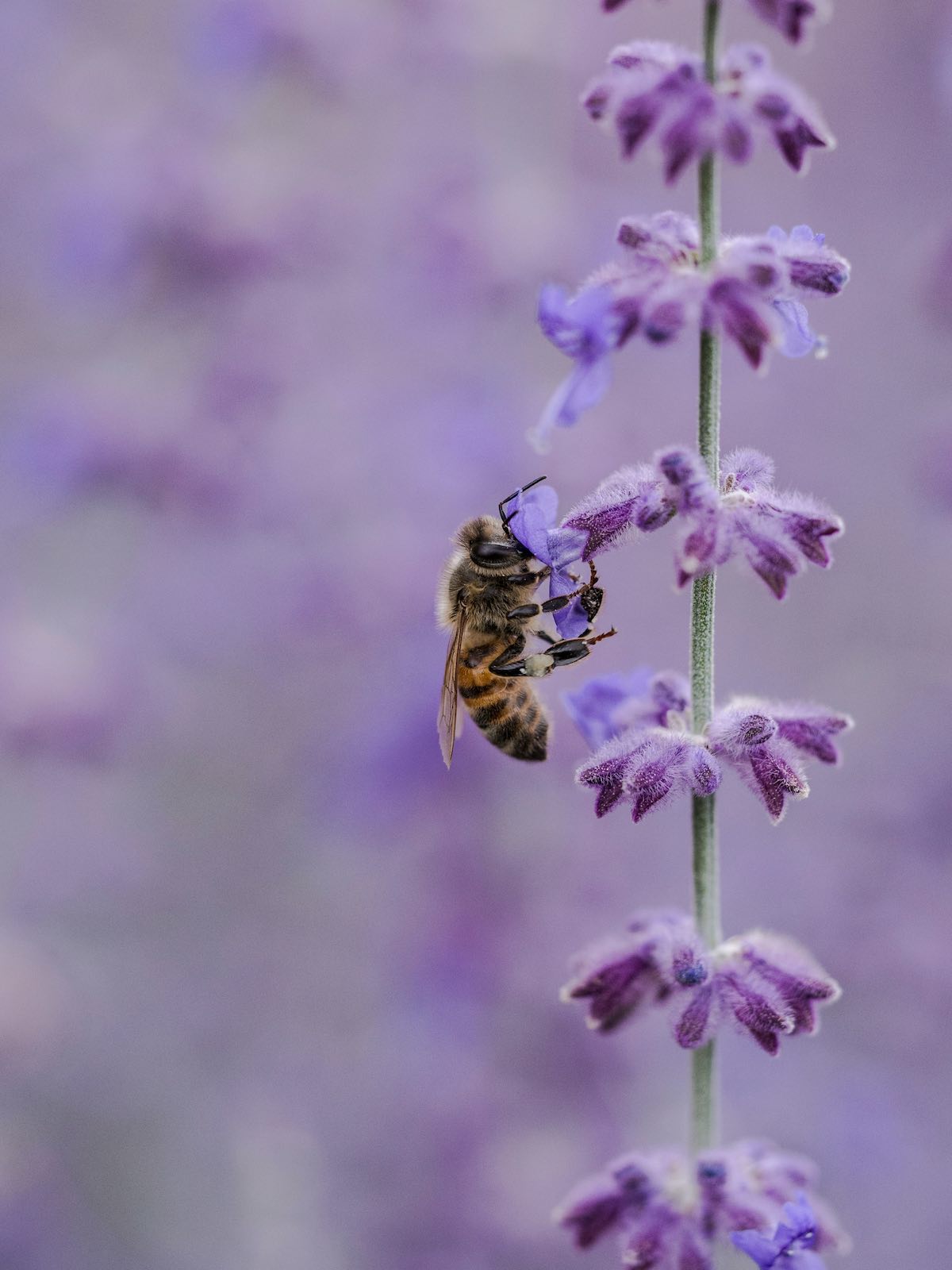
All About Bees | Why They Matter
Bees are fascinating and beautiful creatures that are vital to our ecosystem. But they are facing extinction. Their decline would have significant effects on our planet, even affecting how we live our lives. Discover the role that bees play, why they are important, and the challenges they face.
ALL ABOUT BEES
The beehive, or bee nest, is a busy community where thousands of bees live and work together, divided into worker bees and the queen bee. The hive is a self-sufficient system, efficiently managing resources and tasks. If the queen bee dies, honeybee workers quickly raise a new queen, ensuring the hive continues to thrive. Bumblebee colonies end with the queen’s death and new queens hibernate to start fresh colonies in spring. This process and the unwavering organisation of the beehive showcase the intelligence of these remarkable creatures. Bees communicate with each other in multiple fascinating ways. They dance to indicate food sources, release pheromones for signalling and regulating hive activities, pass nectar around for food exchange and bonding, send vibrations to prompt specific actions, and make sounds with their wings.
There are many different types of bees. The most common are the honeybee and the bumblebee. Honeybees are known for their large, year-round hives and significant honey production, while bumblebees are recognised for their robust bodies and smaller, annual nests. Both play crucial roles in pollination and are vital to our ecosystem.

WHY ARE BEES IMPORTANT?
From honey to beeswax, we regularly use bee products and benefit from their diverse and natural qualities. Honey has healing qualities. It is used as an anti-inflammatory, antioxidant and antibacterial agent. But bees do more than produce honey.
Bees play a crucial role in pollination. They are essential for the reproduction of plants and without honeybees and bumblebees many plants would struggle to reproduce, leading to reduced numbers of fruits and vegetables. Through pollination, bees help maintain plant biodiversity. Bees are responsible for ensuring the survival of many plant species. This also has an effect on our agricultural industry. Through pollinating, bees contribute to the productivity and sustainability of farms across the planet.
Other bee products, such as beeswax, are included in more things than people realise. Beeswax is used for candles, cosmetics, food wraps and more. All consumed bee products have healing benefits.

WHAT IS THREATENING BEES?
Human activities are the leading cause of the danger bees are facing. Climate change and other man-made activities such as urbanisation, pollution and pesticide usage have extremely negative effects on bees.
Extreme weather events from climate change can destroy habitats where bees normally thrive. The changing temperatures disrupt the growth of flowers, restricting bees’ food supply. This is worsened by urbanisation, agriculture and deforestation, which convert natural environments into farms and cities, resulting in habitat loss.
Pesticides are one of the largest threats to bees’ existence. These chemicals kill bees directly, and contaminate the pollen and nectar, harming entire communities.
All of these factors also worsen pollution. Air and water pollution impairs bees’ ability to forage and navigate and leads to the collection of harmful substances in colonies.

HOW CAN WE SAVE THE BEES?
BEE FRIENDLY GARDENS
Plant a variety of flowers that bloom at different times of the year to provide a continuous food source for bees. Include native plants, as they are better suited to the local bees and environment.
STOP USING PESTICIDES
Reduce or eliminate the use of harmful pesticides. Opt for natural pest control methods and advocate for using bee-friendly alternatives in agricultural practices.
SUPPORT SUSTAINABLE AGRICULTURE AND CONSERVATION PROGRAMS
Purchase organic and sustainably produced foods that minimise pesticide use and promote biodiversity. Support conservation programs and initiatives that protect natural habitats and promote the health of bee populations.
RAISE AWARENESS
Raise awareness about the importance of bees and the threats they face. Educate others on how they can help, and participate in community efforts to protect bees. The more people understand the critical role bees play, the more support there will be for their conservation.
START URBAN BEEKEEPING
Support or engage in urban beekeeping initiatives. Keeping beehives in urban areas can help bolster bee populations and increase awareness of their importance. Urban beekeeping provides bees with safe habitats and can contribute to local pollination.
HELP A STRUGGLING BEE
If you find a bee that appears to be struggling, you can help. Mix two tablespoons of white granulated sugar with one tablespoon of water, and place it near the bee. Make sure the mixture becomes more of a paste than a liquid to avoid drowning the bee. This will help them regain their strength.
+Highlight Image:
© Enrique Vidal Flores via Unsplash






